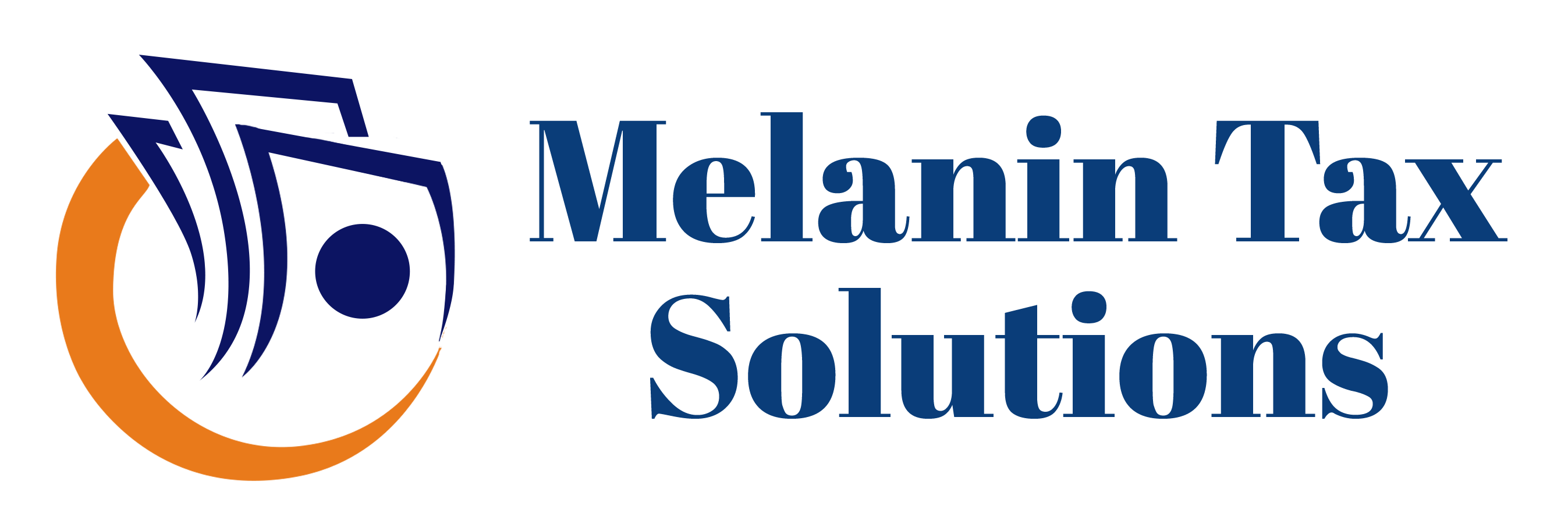As tax documents begin to arrive in the mail and you begin preparing to file your income tax return, you may be worried about how much taxable income you actually earned for the previous year, and if you took advantage of all available deductions to reduce that final amount and maximum your refund.
It is advisable to consult with a tax specialist, like those at Melanin Tax Solutions, to make sure you fully understand tax laws and how best to allow them to your personal situation to reduce your taxable income. But, to get you started, here is a brief explanation of four hacks for reducing taxable income, including some that are retroactive.
1. Retirement Savings Plans
Contribute significant amounts to retirement savings plans. Your best option is to max out the allowed contributions because they are taken from your paycheck prior to taxes. This means you are actually paying less in taxes on your earnings.
This is also one of those retroactive options. If you have not made the maximum amount of contributions allowed prior to the end of the tax year, you can continue to make additional contributions to retirement savings plans right up until April 15th, as long as those additional contributions don’t exceed $5,500.
Taxpayers who are 50 years old or older can actually contribute up to $6,500 in additional contributions.
2. Employer-Sponsored Savings Accounts For Child Care & Healthcare
Participation in employer-sponsored savings accounts for child care and healthcare can also greatly reduce your taxable income. These accounts are funded with pre-tax contributions from your paycheck each pay period, so again, it is advisable to contribute the maximum amount allowed.
Pre-tax contributions limits for dependent care flexible spending accounts for the tax year 2021were $10,500. Funds in this account are specifically for dependent care expenses including daycare, preschool, etc.
Maximum contributions for Tax Year 2021 for a health savings account (HSA) are $3,600 for individuals and $7,200 for families. This is another account with a retroactive contribution option. There is a $1,000 catch-up contribution option for individuals 55 years old or older. Health savings account contributions are also pre-tax contributions and are set aside for offsetting high-deductible health expenses.
Making sure to maximize these contributions is an excellent option for reducing your taxable income. The “catch-up” contribution can be used now to lower your taxable income amount for last year. Make sure you make the maximum-allowed contribution for the current tax year as well, so you can decrease that taxable income too.
Another important consideration when determining your contributions to these accounts is that funds remaining in health savings accounts at the end of the year are usually allowed to carry over for use in the next year, while any remaining funds in flexible spending accounts at the end of the year are forfeited. So while it is advantageous for tax purposes to maximize contributions to these accounts, it is also important to consider how much you will actually need for dependent care, and whether any amount that may end up forfeited at the end of the year would better serve you as a tax deduction or as part of your paycheck during the year.
3. Child Tax Credit & Retirement Savings Contributions Credit
The Internal Revenue Service website (irs.gov) explains the Child Tax Credit as a fully refundable tax credit for families with qualifying children. The website further explains:
“The American Rescue Plan expanded the Child Tax Credit for 2021 to get more help to more families. The credit increased from $2,000 per child in 2020 to $3,600 in 2021 for each child under age 6. Similarly, for each child age 6 to 16, it’s increased from $2,000 to $3,000. It also provides the $3,000 credit for 17-year-olds.
The payments from the IRS were disbursed monthly between July and December of 2021. The amount disbursed was fifty percent (50%) of the estimated amount of the Child Tax Credit that you would be able to claim on your 2021 tax return. The estimated amount was figured using your most recent tax return.
However, be aware that if those calculations are not accurate for the 2021 tax year, your tax return will need to reflect any changes and that could affect the amount of your taxable income.
In regard to the retirement savings contributions credit, you can qualify for a credit of 10% – 50% depending on your filing status, your adjusted gross income, and the amount of your contributions to certain retirement plans. These plans, according to the Internal Revenue Service website (irs.gov), can include retirement plans provided by your employer, individual retirement accounts (IRAs), or an Achieving a Better Life Experience (ABLE) account of which you are the designated beneficiary.
4. Tax-Loss Harvest Investments
Tax-loss harvesting can be a smart strategy for reducing taxable income. However, as with the other taxable income reducing strategies already discussed, consulting with a tax specialist is a smart idea since there are very specific rules to how this can be used.
Tax-loss harvesting is essentially using an investment that is losing money or, at least, underperforming, to offset an investment that is making a profit. The investment loss can offset up to $3,000 of your taxable income. Any loss beyond the allowed $3,000 for that year can be applied to future tax years.
You should be aware though that tax-loss harvesting cannot be used with retirement accounts or other tax-deferred accounts. There are also restrictions as to how losses are to be applied, as well as how soon after the sale of the losing investment you are allowed to buy identical or similar investments. so consulting with a tax specialist.
Conclusion
Tax laws can be confusing, which is why many individuals often miss out on hacks that can reduce their taxable income on their tax returns. Tax professionals, like those at Melanin Tax Solutions, can help you navigate tax laws and identify hacks like those discussed here to help you reduce your taxable income, thereby saving you money. Contact us today to see how we can help you.

